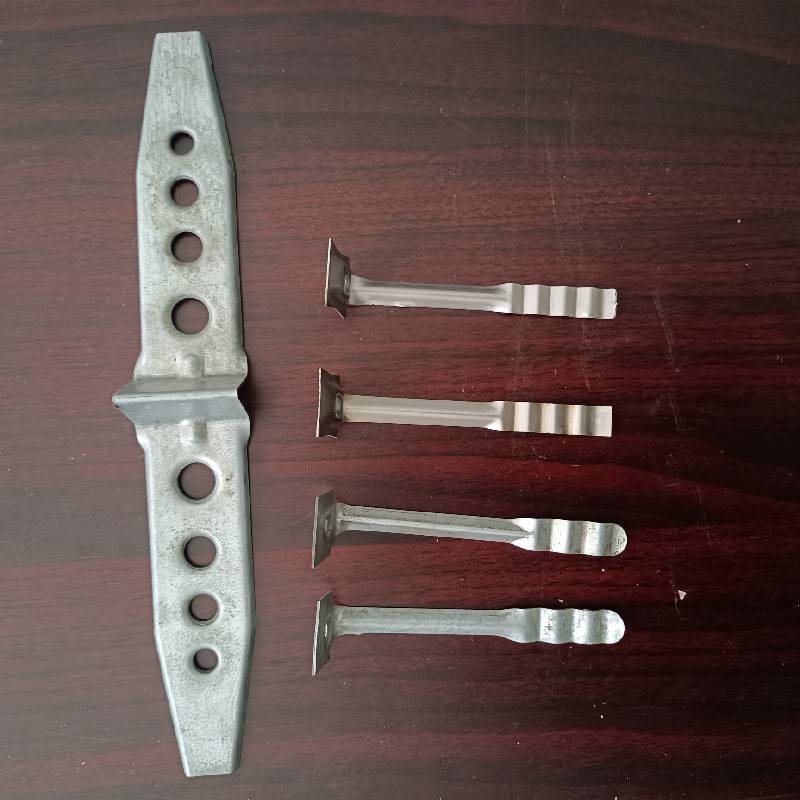
- Mobile Phone
- +8613931874955
- sales@cntcmetal.com
stainless steel tension spring
The Versatility and Applications of Stainless Steel Tension Springs
Stainless steel tension springs are crucial components in various industries, characterized by their ability to store and release energy when subjected to a force. These springs are designed to exert tension when stretched, demonstrating remarkable resilience and adaptability. They are manufactured from stainless steel, which provides excellent corrosion resistance, making them ideal for applications in environments where moisture and chemicals may be present.
What Are Tension Springs?
Tension springs are mechanical devices that absorb energy as they are stretched. They consist of coiled wire, shaped to exert a pulling force when extended. The design of tension springs allows them to return to their original state once the load is removed, which is crucial for many mechanical systems. These springs are commonly used in applications where components need to be held tightly together or where kinetic energy must be stored and released.
Advantages of Stainless Steel
One of the primary benefits of using stainless steel for the production of tension springs is its corrosion resistance. Stainless steel contains chromium, which forms a protective oxide layer on the surface of the metal. This layer prevents rust and other forms of corrosion, ensuring the longevity and reliability of the springs in various environmental conditions. Moreover, stainless steel is known for its excellent strength-to-weight ratio, allowing for the creation of lightweight yet durable springs.
Tension springs made from stainless steel also maintain their mechanical properties across a wide temperature range. This characteristic makes them suitable for applications in both high and low-temperature environments. The ability to resist deformation under stress further enhances their performance and makes them an ideal choice for demanding applications.
Applications of Stainless Steel Tension Springs
The versatility of stainless steel tension springs allows their use across diverse industries, each with unique requirements. Some of the most common applications include
1. Automotive Industry Tension springs play a vital role in the automotive sector, found in components such as seat recliners, trunk latches, and suspension systems. They ensure that parts function smoothly and return to their designated positions after use, contributing to overall vehicle safety and performance.
stainless steel tension spring

2. Aerospace Sector In aerospace applications, the reliability of components is paramount. Stainless steel tension springs are used in mechanisms such as landing gear systems and control surfaces, where they must withstand extreme conditions while maintaining their strength and flexibility.
3. Electronics Many electronic devices incorporate tension springs as part of their mechanisms. For example, in devices such as printers or cameras, these springs help in loading papers or adjusting parts, ensuring they operate correctly.
4. Household Appliances Tension springs are commonly found in household appliances like washing machines and dishwashers, where they assist in the operation of doors and hatches, providing the necessary force to keep them closed during operation.
5. Fitness Equipment In fitness equipment, tension springs provide the resistance needed for resistance training machines, allowing users to adjust the level of difficulty and engage in effective workouts.
Manufacturing Considerations
When producing stainless steel tension springs, manufacturers must consider various factors such as wire diameter, coil diameter, and the number of active coils. These parameters greatly influence the spring's performance characteristics, including its load capacity and elongation. Additionally, the heat treatment process can further enhance the properties of the spring, increasing its strength and fatigue resistance.
Quality control is vital in the manufacturing process to ensure that each spring meets the necessary specifications and industry standards. Testing methods such as load testing, fatigue testing, and corrosion resistance evaluation are typically employed to guarantee the springs’ reliability in their intended applications.
Conclusion
In conclusion, stainless steel tension springs are indispensable components in numerous industries, owing to their durability, corrosion resistance, and flexibility. Their ability to absorb and release energy makes them crucial for the functionality of many devices, from automotive systems to household appliances. As technology advances, the demand for more efficient and reliable springs continues to grow, making the future of stainless steel tension springs promising. With ongoing innovations in materials and manufacturing processes, these springs are likely to become even more versatile and efficient, further solidifying their role in modern engineering and design.
share:
-
Why Sacrificial Formwork Is Redefining Underground ConstructionNewsJun.06,2025
-
The Structural Dynamics of Modern Concrete: How Snake Spacers Revolutionize Flexible ReinforcementNewsJun.06,2025
-
Snake Spacers Smart-Lock Concrete Reinforcement with Surgical PrecisionNewsJun.06,2025
-
Snake Spacers: Reinforcement Precision for Modern Concrete ProjectsNewsJun.06,2025
-
Snake Spacers Powering Concrete's Structural DNANewsJun.06,2025
-
Slither into Success: Snake Spacers' Precision Bite for Unbreakable ReinforcementNewsJun.06,2025
-
Sacrificial Formwork: Building Stronger, Faster, and Safer StructuresNewsJun.06,2025



















